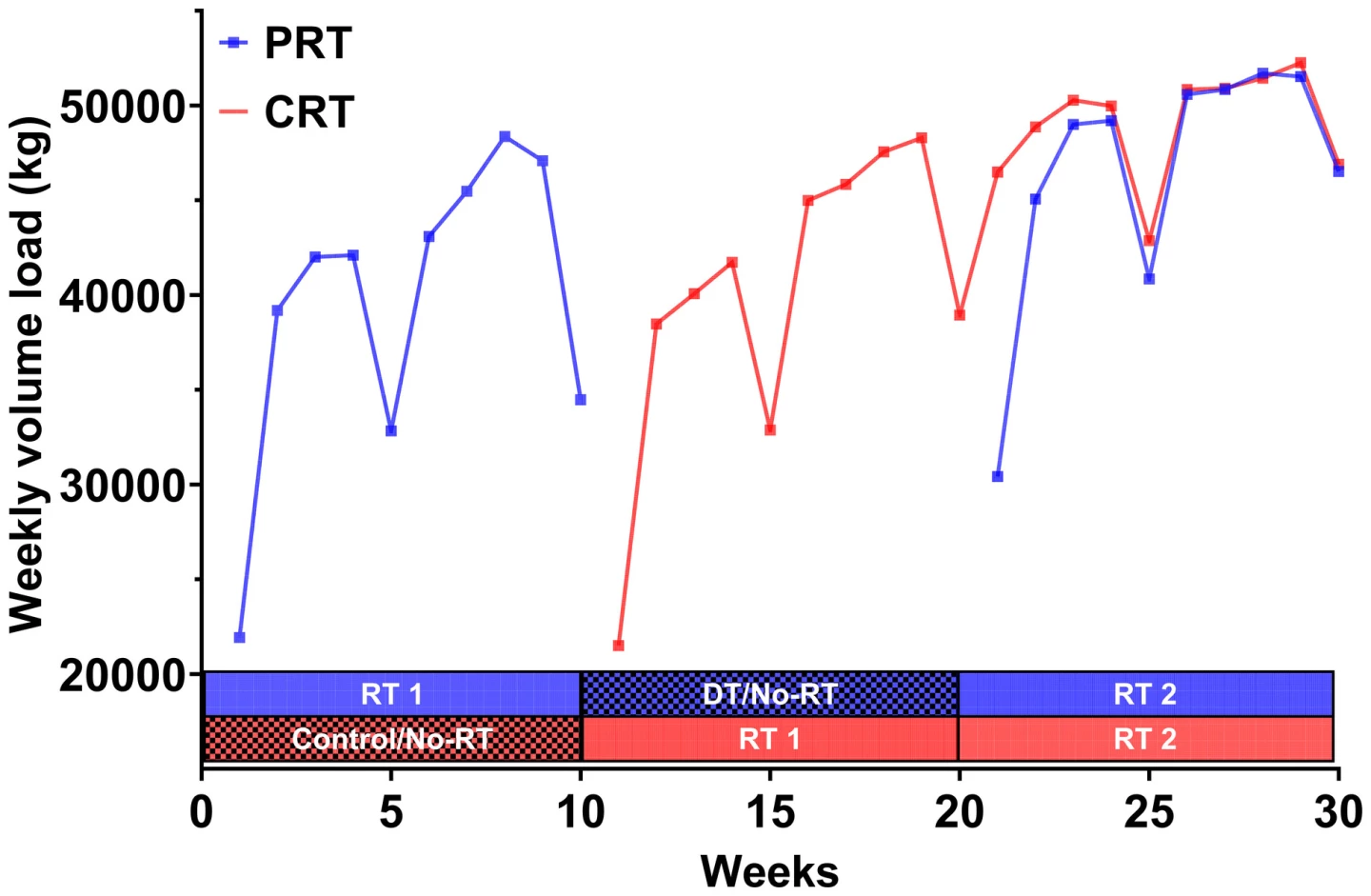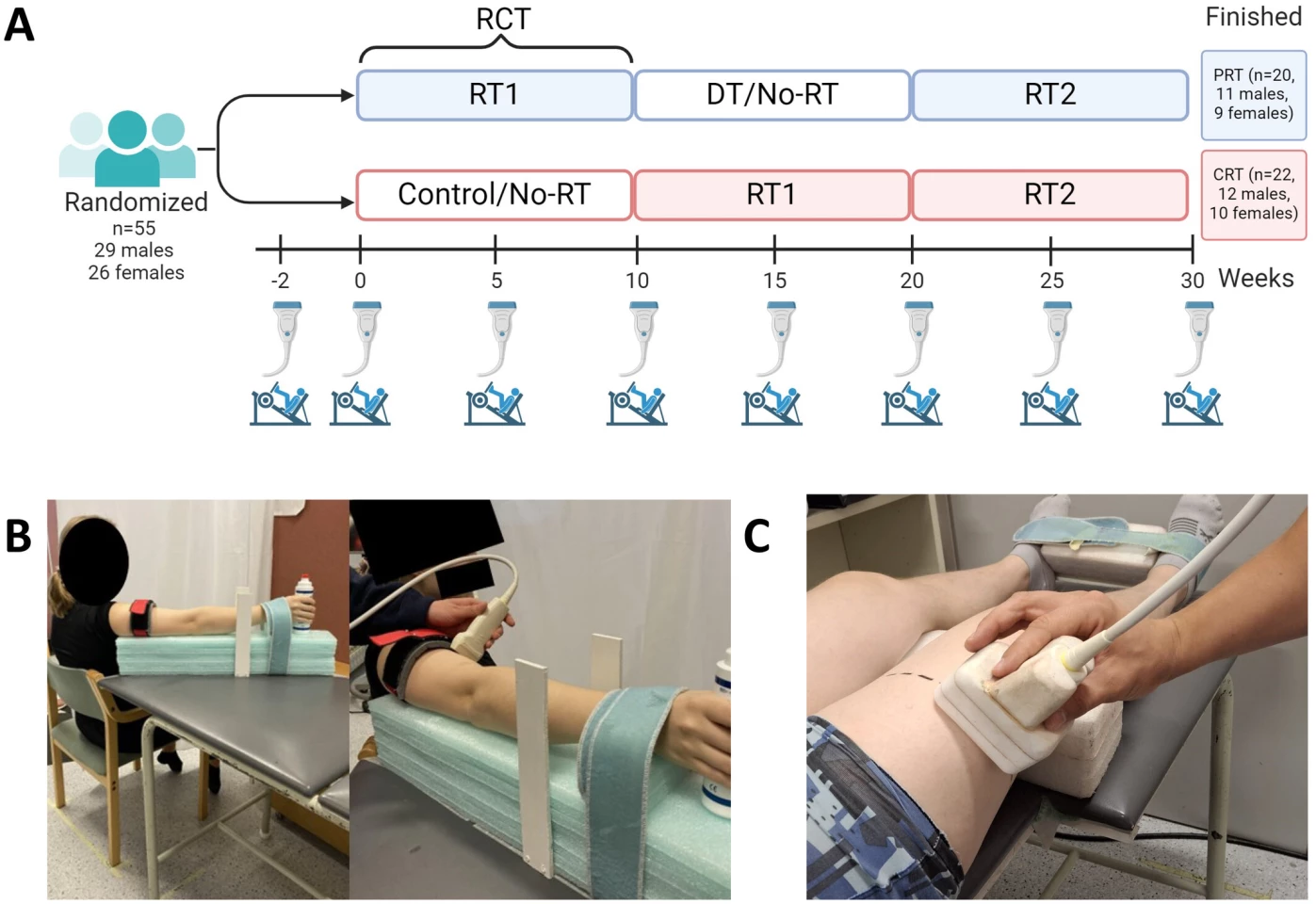Consistency is always the focus of exercise plans, which can lead people to giving up altogether if they miss a few workouts. But a new study has found that even after a 10-week break from strength training, it took people very little time to get back to where they left off. It's revealed fascinating new insights into the mechanism of muscle memory.
Researchers from the University of Jyväskylä's Faculty of Sport and Health Sciences in Finland found surprising results in their study, which looked into how taking a 10-week break in the middle of a 20-week resistance-training schedule affected muscle size and strength loss.
In the study, one group of 22 participants worked out twice a week, with a focus on muscle strength and size, for 20 continuous weeks. In a second group, 22 participants had the same routine for the first 10 weeks, before stopping altogether for the middle of the study, returning to the twice-weekly workouts at the 20-week mark for a further 10 weeks.
What they found was surprising: while muscle size declined, strength didn't slip as much as expected, and once the workout routine resumed after the break, it took just a couple of weeks to be back to where they were before their 'gym holiday.'

“During the first few weeks after the break, progress was very rapid and after only five weeks of re-training, the pre-break level had already been reached,” said Eeli Halonen from the Faculty of Sport and Health Sciences.
What's more, the people who trained continuously for 20 weeks saw a slump in gains after the first 10 weeks – and those who took a break soon caught up and even surpassed them in some measures by the end of the study.
It's the first time researchers have compared 'retraining' routines with a continuous model.
“For the group training continuously for 20 weeks, progress clearly slowed after the first 10 weeks,” Halonen adds. “This meant that there was ultimately no difference in muscle size or strength development between the groups.”

The participants, whose ages ranged from their late-20s to mid-30s, were physically active but had never participated in any sort of long-term resistance-training program.
Previous studies have shown that short breaks in a workout program won't set people back to square one, but such an extensive pause was untested. Interestingly, maximum strength was better preserved in the time away from training, and declined at a much slower rate than expected.
“This could be explained by the fact that changes in the nervous system may be more permanent than peripheral changes in the muscles,” Halonen said.
Naturally, muscle size was reduced after the break and it took around five weeks to be back on a level with the continuous group, but it's good news for anyone who worries that an injury, holiday, illness or something like a COVID-19 lockdown might mean starting from scratch after time off.
“Of course, the break slows progress some,” Halonen points out, “but it is comforting to know that it is possible to reach the pre-break level surprisingly quickly.”
The team will now look at the workings of muscle memory on a cellular and molecular level, in an effort to gain new understanding of just how the body holds onto changes made through training.
“The physiological mechanisms of muscle memory are not yet fully understood,” noted senior researchers Juha Hulmi and Juha Ahtiainen, “and our next step is to study in more depth the cellular and molecular changes in muscles that could potentially explain this phenomenon.”
As the researchers note in the study: "While continuity of training is an important fundamental principle in physical activity, our results suggest that recreational RT (resistance training) practitioners should not be too concerned about an occasional 10-week training break, for example, once a year, as long as the RT performed is effective and regular."
The study was published in the journal Scandinavian Journal of Medicine & Science in Sports.
Source: University of Jyväskylä







